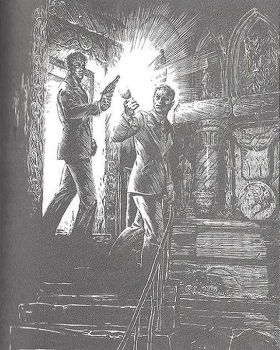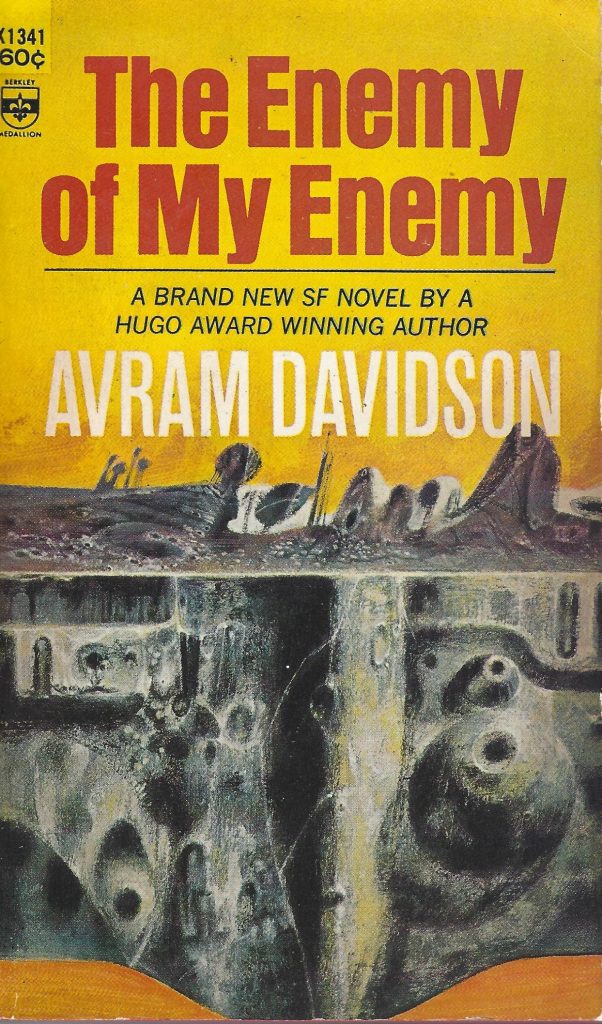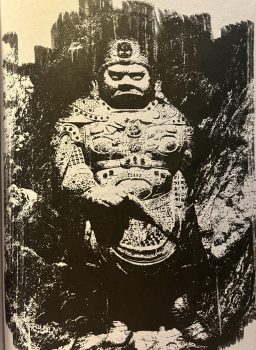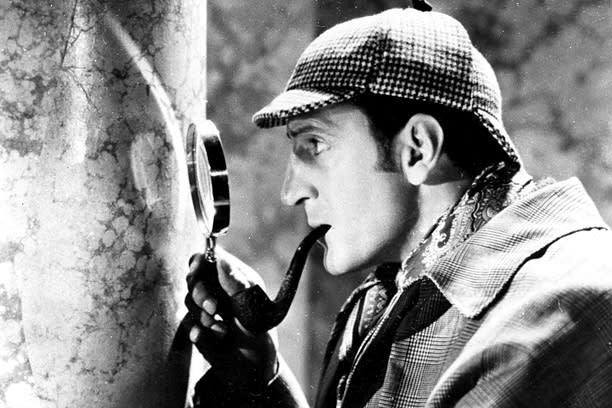A (Black) Gat in the Hand: Hardboiled Gaming – L.A. Noire
“You’re the second guy I’ve met within hours who seems to think a gat in the hand means a world by the tail.”
– Phillip Marlowe in Raymond Chandler’s The Big Sleep.
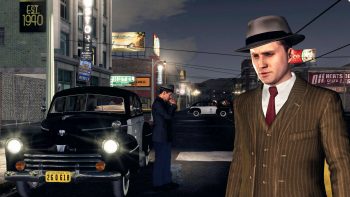 Grand Theft Auto has been a hugely successful video game franchise for almost thirty years. From Rockstar Games, I’ve never played it. They also make Red Dead Redemption, which I tinkered with a little. It’s pretty high quality and I’ll get to it some day. Among their other titles, the one I have jumped into is L.A. Noire.
Grand Theft Auto has been a hugely successful video game franchise for almost thirty years. From Rockstar Games, I’ve never played it. They also make Red Dead Redemption, which I tinkered with a little. It’s pretty high quality and I’ll get to it some day. Among their other titles, the one I have jumped into is L.A. Noire.
Set in 1947, you are Cole Phelps, an LAPD uniformed patrolman, and a WW II Marine veteran. You are assigned cases, and you go to scenes, collect clues, and talk to people. The goal, of course, is to collect enough information to catch the culprit. It’s open-world, but the path to solving a case is rather straightforward. I’ve only failed once so far, and it was clearly trying to tell me what I was missing, but I couldn’t pick up on it. I’m currently assigned to the Traffic division, which is way more than going out for fender benders.
There are also regular side quests which come in as radio calls. You can take the call and go take care of it. This often involves chases and shootings.
I have killed quite a few folks so far. It is frowned upon if you shoot someone that didn’t need shooting. But I’ve been killed (you restart the mission), so it can get tough out there for your and your partner.

